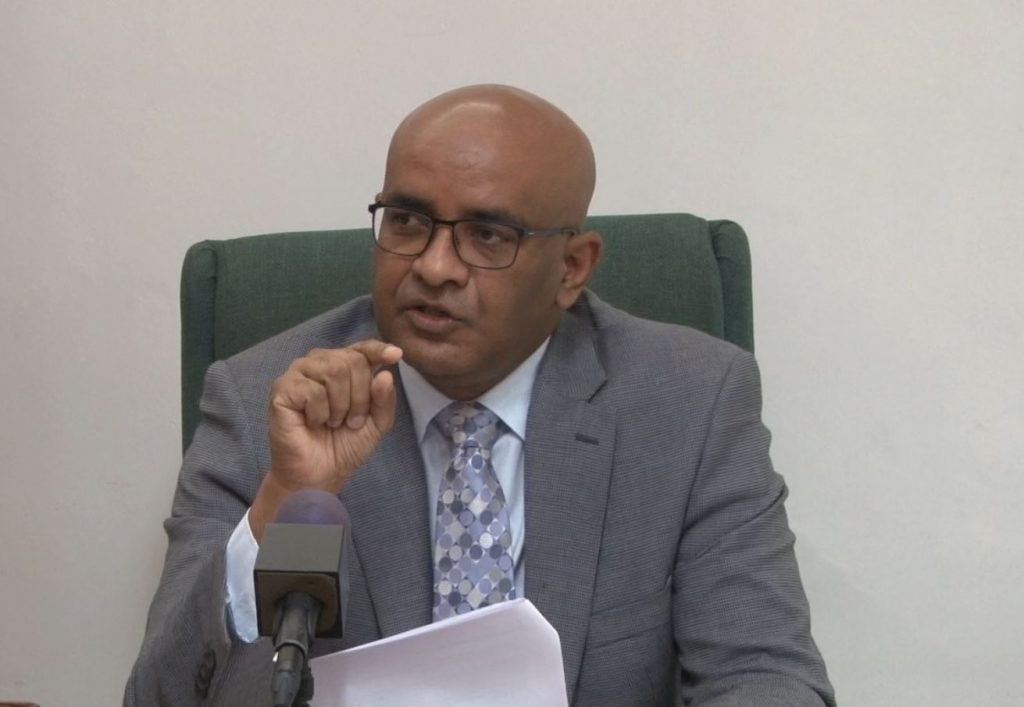(newsroom.gy) – Opposition Leader Bharrat Jagdeo has moved to the Caribbean Court of Justice (CCJ), asking for the Court to reverse the decision of Guyana’s Court of Appeal which Monday, by majority decision, chose to say that in determining the results of the elections the Guyana Elections Commission (GECOM) must use “valid” votes.
In its ruling Monday, the Court of Appeal did not grant any of the declarations seeking to block Lowenfield from submitting his report or from forcing GECOM to determine the credibility of the elections. But Jagdeo is leaving nothing to chance and moved to the Court over fears that Lowenfield would use the figures he alone, in agreement with APNU, calculated after calling into question scores of ballot boxes. Lowenfield’s calculations, after dumping hundreds of thousands of votes, would hand APNU+AFC a massive victory over the PPP.
Article 177 (2) of the Constitution dictates that the party with the most votes wins the elections. But because the legal order for the recount signalled the need to establish the credibility of the elections, two of three Court of Appeal judges interpreted the meaning of the Constitution to say that the party with the most “valid” votes wins the elections.

The ruling has set off a perverse interpretation by the caretaker Coalition, which is clinging to its claims that only the votes Lowenfield said were absolutely without question should be tabulated and form the basis of the results for the elections. All the claims made by Lowenfield were the actual claims of the APNU+AFC. The scrutineer for the recount process – a CARICOM High-Level team – has dispelled those claims. The team said what APNU+AFC did was to embark on a fishing expedition when it insisted that the names of dead persons and persons out of the country were marked off as having voted.
Jagdeo contended, as does the Chair of GECOM and five other parties which contested the elections, that the Court of Appeal did not have the jurisdiction, or power, to hear or determine the case as the Constitution particularly limits the Court of Appeal to only hear matters regarding the qualification of a person elected to be President. And it is this position that Jagdeo maintains and has asked the CCJ to determine before Lowenfield submits his report. As a result, a meeting which was scheduled by the Chair of GECOM for 11:00 hrs today has been cancelled.
In his application to the CCJ, Jagdeo argues that Court of Appeal was wrong when it held that the scope of Article 177(2) of the Constitution could be modified or amended by virtue of any Order of GECOM or at all, except for what it can explicitly inquire into, namely the qualification of a person elected as President.
He argued that the Court was wrong in interpreting Article 177(2)(b) by modifying the provision to include the word “valid” in circumstances where the Court of Appeal had no jurisdiction so to do. He said that such a modification was both unwarranted and unnecessary as well as inimical to the complex legislative scheme for the conduct of elections as framed by the Constitution and multiple Acts of Parliament.
He further submitted that Court of Appeal’s decision contravenes the Constitutional doctrine of the separation of powers by authorising GECOM to usurp the specialised jurisdiction of the High Court under Article 163 of the Constitution, which says that questions regarding the elections should be solely determined through an elections petition in the High Court.
Jagdeo further argues that what the Court of Appeal in effect did, by considering the recount order, was to review the decision of GECOM. This, he said, is in breach of Section 140(1) of the Representation of the People Act which prohibits any court from inquiring into whether any function of GECOM has been performed validly or at all.

